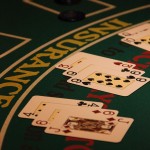 Things most certainly don’t look very good for Macau’s nightlife, especially when it comes to casino gaming! Being one of the very few Asian regions to allow legal gambling, Macau has been a den for gamblers all over the region, with numerous casino resorts opening across the country (especially in more recent years) specifically meant to attract foreigners. However, after it was exposed that certain casinos in Macau had been involved in a myriad of illegal activities, such as money laundering, Chinese president Xi Jinping would not let that stand. A series of rather public crackdowns followed, which scared off a lot of casino regulars (especially the high rollers), leading to a significant drop in profits.
Things most certainly don’t look very good for Macau’s nightlife, especially when it comes to casino gaming! Being one of the very few Asian regions to allow legal gambling, Macau has been a den for gamblers all over the region, with numerous casino resorts opening across the country (especially in more recent years) specifically meant to attract foreigners. However, after it was exposed that certain casinos in Macau had been involved in a myriad of illegal activities, such as money laundering, Chinese president Xi Jinping would not let that stand. A series of rather public crackdowns followed, which scared off a lot of casino regulars (especially the high rollers), leading to a significant drop in profits.
Analysts expect that the gross gaming revenue in Macau will drop by a full 24% to $33bn. This rather grim prognosis has raised a lot of concern about the future of Macau as an Asian gaming haven. After all, there’s currently planned construction of various resorts and casinos totalling more than $20bn, and considering the Chinese government’s rather aggressive approaches that are scaring both the guilty and the innocent, their future is certainly in question. And, worst of all, it’s also threatening prospectors that are looking to expand in other Asian territories.
“[It] doesn’t help anyone”, says Thomas Arasi, president of Bloombery Resorts (which operates several casinos in the Phillipines) at an industry conference in Macau which discussed the fallout from the Chinese anti-graft campaign, and how it’ll affect the future of gambling in the region as well as worldwide. The general consensus was, obviously, that it would have a rather negative effect. Several nations, such as Japan, South Korea and Vietnam, are currently considering legalizing casino gaming, but are feeling unease over the supposedly rampant corruption that Macau’s casinos have generated. And while Singapore has managed to legalize gambling with very little, if any, legal trouble, that has done little to convince governments that their countries won’t turn into the next Macau.
“A year ago people were jumping up and down about the possibility of Japan and South Korea legalizing casino gambling”, says analyst Praveen Choudhary, though he adds that the recent events in Macau have made investors much more cautious, to the point where legalization of gambling in the region, while an arm’s reach away a year ago, has almost gone right back to being a distant dream. Experts are unanimous that Macau might hit rock bottom very soon, and if that happens, the effects won’t just be limited to Asia – they could spread like waves as far out as the US, with the worst case scenario being a drop in Las Vegas profits by 2%.
It’s important to remember that Macau’s economy is largely dependant on casinos and casino resort, so the aforementioned “rock bottom” is really something of an apocalyptic scenario for its citizens. High rollers from both the US and China have poured literally billions of dollars into its economy, and with those same high-rollers now scared by the crackdowns, Macau is in for a really difficult period. Some of Macau’s casinos, which are owned by Chinese tycoons as well as American gambling moguls, have already started closing down, with others laying off dealers. Macau’s population is just above 600,000 and has an unemployment rate of just 1.8%, mainly thanks to the casino industry. If things really go from bad to worse, as they’re shaping up to, one of the most prosperous regions in the world might suffer horribly.